JAPAN’S MARCH TOWARD MILITARISM
Japan’s shift away from pacifism and toward becoming a full-fledged military power has long been a focus of the Trumpet as well as our forerunner, the Plain Truth.
We have closely watched and reported on this shift because Bible prophecy says a third world war will soon erupt and that Japan will play a role in that war.
We believe Japan’s participation in this future war will contribute to the conflict being the most violent and destructive one mankind will ever suffer. To understand why we hold this view, first consider why Japan became a pacifist nation in the first place. And then we must consider Bible prophecy.
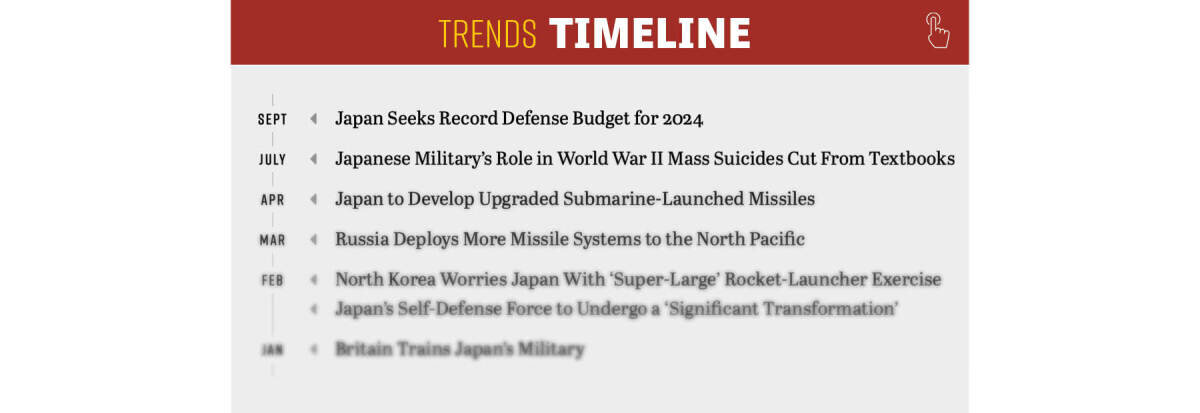
_____
A Tragic History
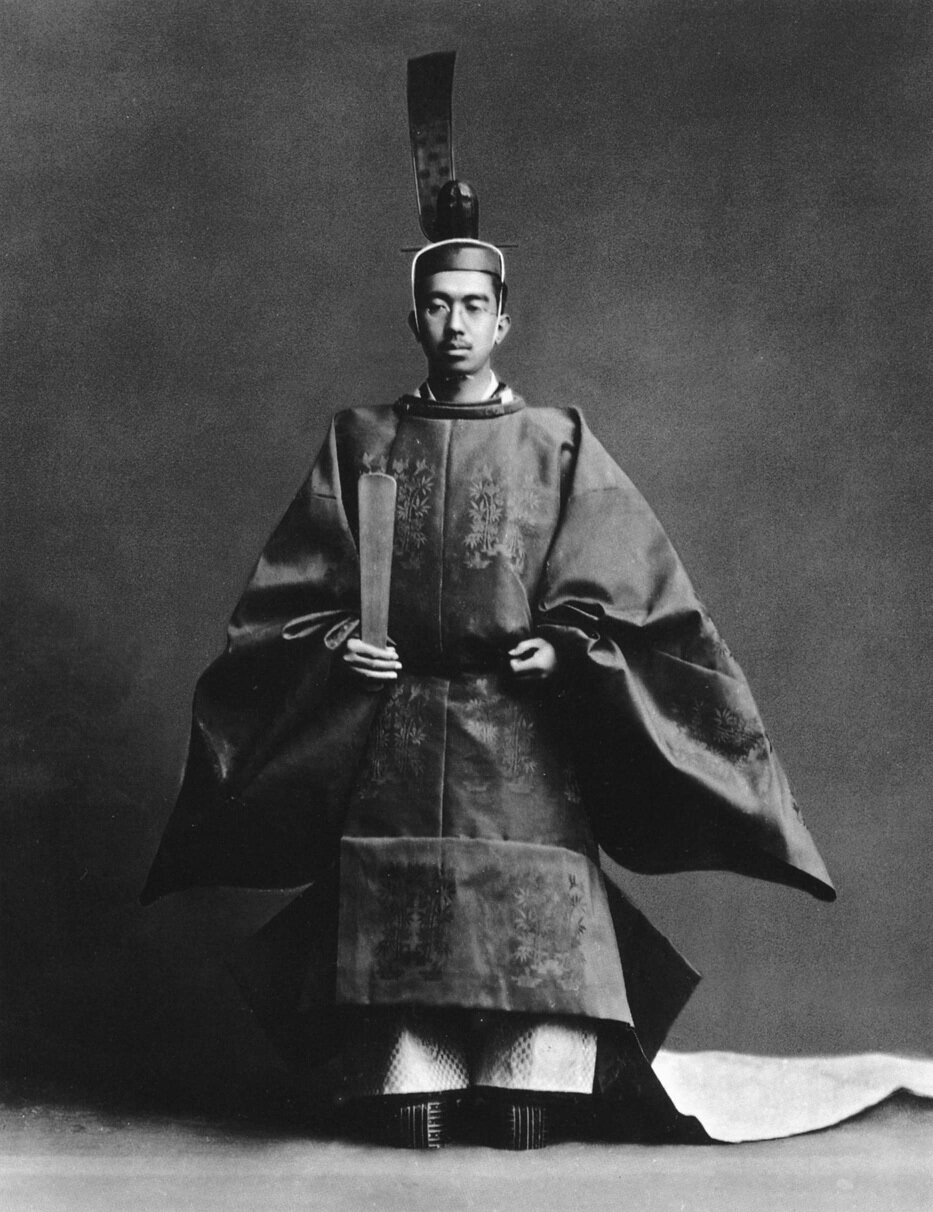
In the 1920s, Japan’s economy was stagnating. To inspire the people, its leaders dusted off some ancient Japanese myths. They told the people that Japan was a nation of gods, racially superior to all others. They said the imperial family was the offspring of the sun goddess Amaterasu. State Shinto became the national religion, teaching that Emperor Hirohito was the “son of heaven”—a god destined to rule the whole world. These ideas became the mantras of school curricula and were trumpeted in Japan’s civic life.
The Tanaka Memorial essentially became Japan’s foreign policy from 1927 until the end of World War ii. One part of this document says: “The nations of the world will come to look up to our emperor as the great ruler of all nations.” Although the authenticity of the document is a matter of dispute, history shows that Japan followed its strategy, at least in the broad strokes. It laid out detailed military plans for Japan to conquer the entire world, starting with China: “With China’s entire resources at our disposal, we shall conquer India, Central Asia and Europe. … A victorious Japan will place all the white races of the world under the rule of the son of heaven. … If we succeed in conquering China, the rest of the Asiatic countries and the South Sea countries will fear us and surrender to us.”
The Japanese wanted their conquest of China to inspire fear throughout Asia, so it was ruthless beyond words.
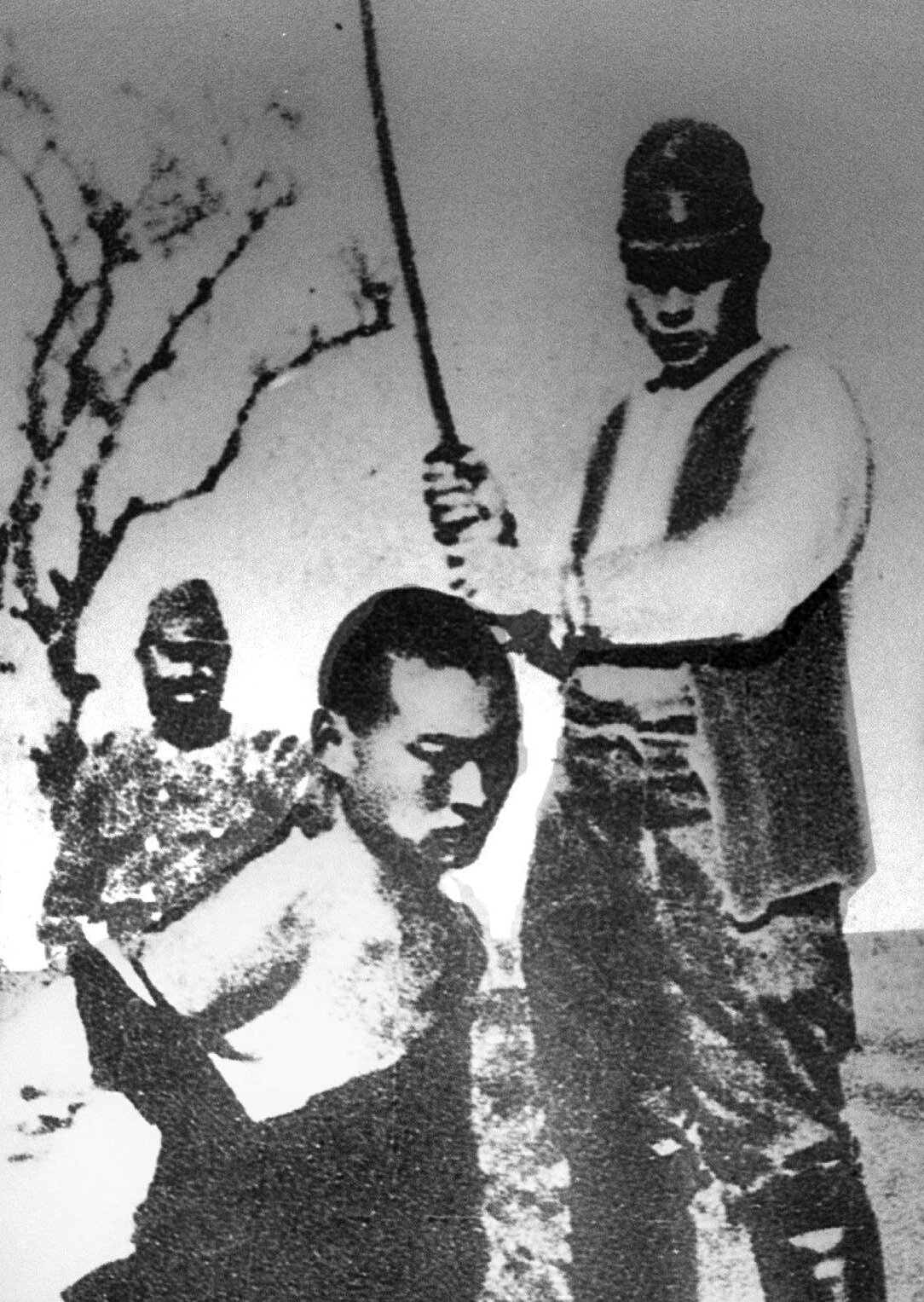
In the Massacre of Nanjing, for example, Japanese troops murdered over 200,000 Chinese civilians. Mothers with infants, pregnant women, children and old men were tortured, bayonetted, beheaded, burned, and buried alive. Many women and girls were gang-raped, mutilated and killed. Others were kept around as “comfort women”—sex slaves forced to serve Japanese soldiers.
These weren’t soldiers running amok, ignoring orders. The crimes were well known to the military’s highest officers. They were committed with the royal stamp of approval—for the purpose of instilling fear in the nations they planned to conquer next.
Nanjing was not an isolated case of savagery. Japanese troops were similarly cruel in other Chinese cities, and also in Korea, the Philippines, Singapore and other countries. A look further back in history shows that World War ii was not an anomalously aggressive epoch for the Japanese. There were also the invasions of Korea in the 1590s, the Battle of Ganghwa, the First Sino-Japanese War, the invasion of Taiwan, the Russo-Japanese War, and the list goes on.
During World War ii, the ruthlessness and tenacity of the Japanese was largely driven by their belief that Hirohito was a god destined to rule the world. This was a toxic faith. It made many Japanese soldiers and even civilians virtually incapable of surrendering—even in the face of insurmountable odds.
By the end of World War ii, Japan had been fighting for 14 years. Almost 3 million Japanese were dead, with many more injured or gravely ill. Most of the population were starving, and the nation lay in ruins. But even then, soldiers and civilians generally would not surrender. Nothing short of two atomic bombs was able to halt Japan’s perverse military fanaticism.
_____
Japanese ‘Forever Renounce War’
It was then, in the immediate aftermath of that tragic history, that the United States occupied Japan and drafted its Constitution. Allied officials, led by Gen. Douglas MacArthur, wanted to ensure that military fanaticism would not rise again in Japan. Thus, they included Article 9 in the new Constitution. This clause outlawed war as a means for Japan to settle international disputes.
Article 9 states: “Japanese people forever renounce war as a sovereign right of the nation and the threat or use of force as means of settling international disputes. … [L]and, sea and air forces, as well as other war potential, will never be maintained.”
“We are committed,” MacArthur said, “to see that the Japanese people are liberated from this condition of slavery.”
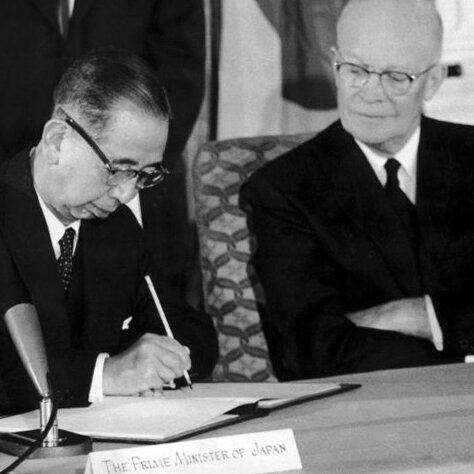
As part of the liberation, MacArthur’s team outlawed emperor worship and disbanded State Shinto. They led Emperor Hirohito to deliver his famous “Declaration of Humanity,” a radio address to Japan in which he renounced the nationalistic interpretation of Shinto, denounced the idea that he was a god, and said the Japanese are not a superior race.
Shortly after Article 9 was written, the U.S. and Japan signed the Treaty of Mutual Cooperation and Security. This codified Japan’s dependence on the U.S. for its defense, saying America would defend Japan by stationing U.S. troops near potential conflict zones in the region.
_____
Quietly Returning to Militarism
The Constitution that U.S. leaders wrote, without the change of even a comma, has technically governed Japanese affairs in the decades since.
But during the 70 years that have passed since the end of World War ii, Japan has made some significant strides away from pacifism.
The first of these came as early as 1950, when Japan established a National Police Reserve. In 1954, with Washington’s support, Japan expanded this into the Japan Self-Defense Force (sdf). This “self-defense” force became, in fact, a fully integrated, ultra-modern assemblage of land, sea and air components to rival those of any other world power. In 1992, Japan passed the United Nations Peacekeeping Cooperation Law, which allowed the sdf to take part in certain nonmilitary aspects of UN missions. That meant Japanese soldiers were allowed, for the first time since World War ii, to be stationed outside Japan’s borders. Then came the terrorist attacks of Sept. 11, 2001, which brought about changes that the New York Times called “the most significant transformation in Japan’s military since World War ii” (July 23, 2007).
Japan’s march toward open militarization sped up from 2004 to 2010. During those years, Tokyo sent noncombat troops to Iraq, Indonesia, Nepal, Israel, Djibouti, Somalia and Haiti. During the same time frame, Japan made more moves away from being a purely “self-defense” force.
On March 11, 2011, the magnitude-9.0 Tohoku earthquake struck Japan, spawning a tsunami and causing a severe nuclear crisis. The sdf leaped to action, carrying out rescue operations with more than 100,000 soldiers—an utterly unprecedented number in the postwar era. “It is no exaggeration to say that the earthquake has spurred the most significant Japanese military operations since the end of World War ii,” World Politics Review wrote at the time.
The rescue efforts drastically improved the Japanese public’s perception of its nation’s military forces, and the sdf experienced its greatest public support in decades.
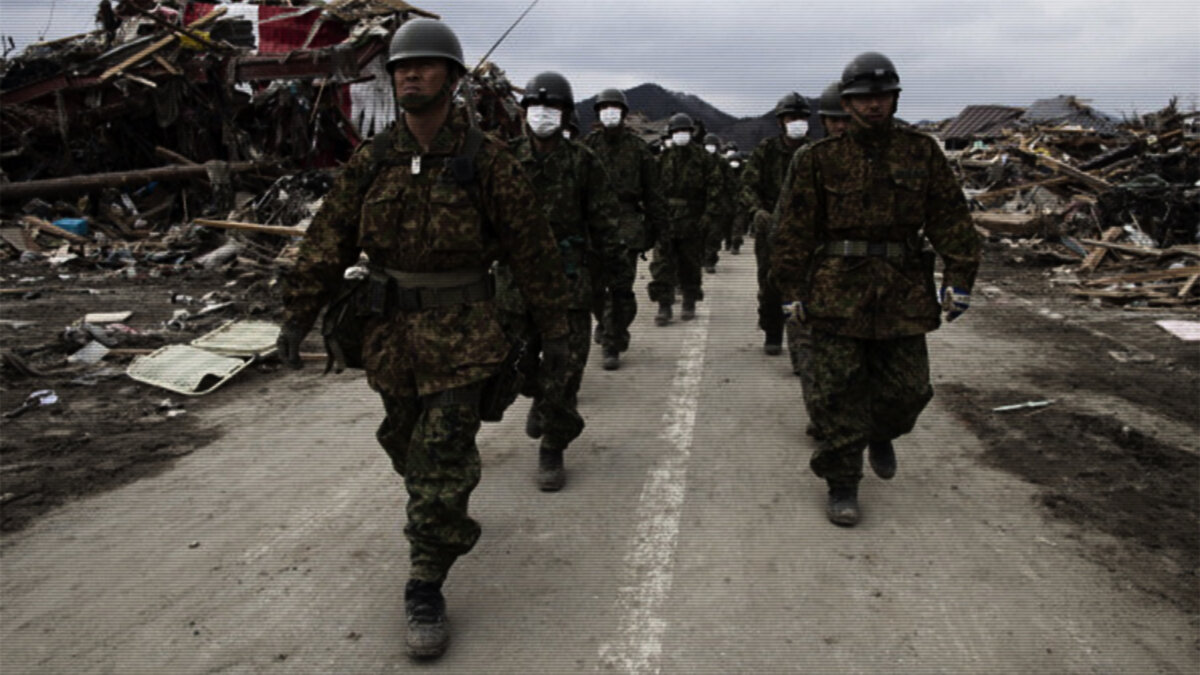
On July 1, 2014, Tokyo made the decision to “reinterpret” a key section of its pacifist Constitution: the ban on collective self-defense. For the preceding 70 years, it had understood this section as limiting Japan’s forces to acting in its own defense, and never in defense of its allies, and never in any conflict outside Japanese territory. Under Japanese Prime Minister Shinzō Abe, the reinterpretation was made official in September 2015. It meant Japan could use its large, cutting-edge military in ways that would have been unthinkable just a few years earlier: If a U.S. ship is under fire, Japan can assist it; if a North Korean missile is aimed at an Australian ship, Japan can shoot it down; if the UN is involved in a “gray zone” activity, Japanese troops can participate.
The Japanese wasted little time taking advantage of their new military capabilities. In November 2016, for the first time since World War ii, Japan deployed soldiers to South Sudan who had a mandate that none of their countrymen has had for 70 years: They were permitted to use force to protect UN staff, civilians and themselves.
Tim Kelly, Reuters’ Tokyo defense and security correspondent, said, “For Japan it actually represents a very, very big step and a very major stride away from those seven decades of pacifism.”
The landmark reinterpretation also paved the way for greater changes to Japan’s Constitution. For the first time since World War ii, Japan could soon officially have first-strike capabilities against potential threats.
In light of Japan’s wartime history, all of these steps toward nationalism and militarism are worthy of attention and concern.
Adding to the concern is the fact that Japan is notorious for failing to express much remorse for its wartime savagery. Japan has also revised history in many cases to downplay its crimes.
The people of Japan embody many exceptionally noble and admirable traits. Their cultural and technological contributions have enriched the human experience for millions around the globe. But as a result of historic revisionism, a dangerous number of modern Japanese view their nation’s wartime atrocities with pride.
This is a foreboding and worrisome trend.
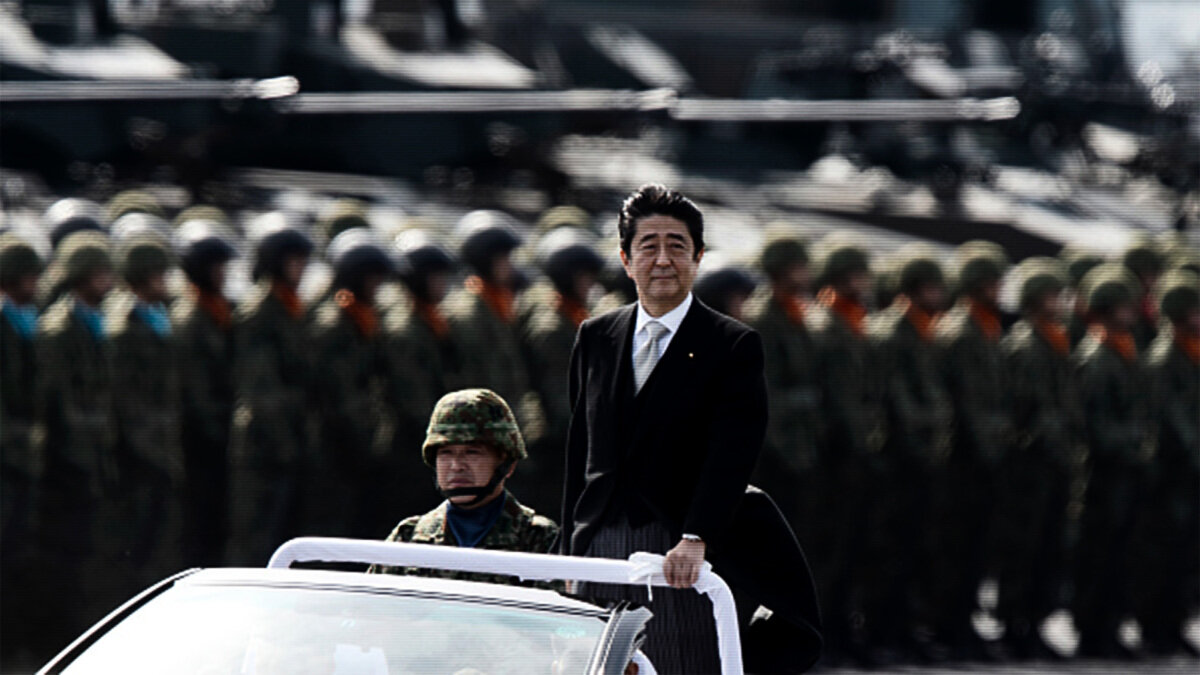
_____
What’s Ahead?
In 1971, when Japan was still staunchly pacifist, educator Herbert W. Armstrong predicted that the nation would awake from its postwar slumber and return to formidable militarism. “Japan today has no military establishment,” he wrote. “But we should not lose sight of the fact that Japan has become so powerful economically that it could build a military force of very great power very rapidly” (Plain Truth, March 1971).
For decades, Mr. Armstrong’s forecast could have seemed alarmist to many students of geopolitics. But now—as we see nationalists and hard-liners dismantling Japan’s pacifist architecture and leading a revival of the nationalism, militarism and emperor worship that made Japan an unusually ruthless military machine—that forecast no longer appears far-fetched. It is clear that Mr. Armstrong’s forecast was right! How could he have known?
Mr. Armstrong’s view was informed by specific Bible prophecies. Journalists sometimes mention the biblical word Armageddon found in Revelation 16:16, but it is rare to hear talk of “the kings of the east” discussed in verse 12 of that same chapter. The Bible shows that these “kings of the east” will be a massive bloc of Asian nations that pool their militaries together in the end time. They do this in order to confront another power bloc led by Germany. Revelation 9:16 says that the Asian army will be comprised of a jaw-dropping 200 million soldiers.
Some specific details of how this Eastern superpower will form in the end time are still unknown, but prophecy is unmistakably clear about the fact that it will happen. And, though it will be led by Russia and China, Ezekiel 38:6 specifies that “Gomer” and “Togarmah” will be part of this power bloc, and lend their military power to it. These are ancient names for the main peoples who make up modern Japan.
These prophecies were recorded in the Holy Bible thousands of years ago. And today we can see the groundwork being laid for their fulfillment! God’s mighty plan is being carried out!
Today, animosity and distrust linger between the peoples of Japan and China. But what would the Japanese do if they saw a fierce united European military destroy their main ally, the United States? Would they wait and find out if they, alone, could stand up to this ferocious European power? Or would their desire to survive prompt them to lay aside their difference with China and partner up with the Russo-Chinese bloc?
In such a scenario, it’s easy to see that the survival instinct would prompt the Japanese people to humble themselves before the Chinese and Russians and to lend their burgeoning military might to the Russo-Chinese axis. They would do so based on the belief that the alliance would be only temporary.
The Bible makes plain that an Asian superpower will very soon rise up, and it tells us that the resulting war—thanks partly to the participation of the Japanese war machine—will be the most devastating one mankind will ever have endured.
Christ described the coming Third World War, saying, “For there will be greater anguish than at any time since the world began. And it will never be so great again. In fact, unless that time of calamity is shortened, not a single person will survive …” (Matthew 24:21-22; New Living Translation).
Just as Mr. Armstrong did in the Plain Truth magazine, the Trumpet reports on Japanese efforts toward remilitarization because each represents one small step closer to that 200 million-man army. Each move by Japan to normalize its military is a step nearer to that unprecedentedly violent conflict. Many Bible passages show that it will be the bloodiest, most destructive conflict in history. Japan’s march toward militarization points to a dark future.
But there is good news!
In Matthew 24, Christ says that the global war at the end of this age will be so devastating that it could kill all human life. But then He adds a vital detail in verse 22 (nlt): “But it will be shortened.”
World War iii will be cut short! Before man fires his last weapons to totally annihilate himself, Jesus Christ will interrupt the conflict. Immediately after that time of unprecedented death and destruction, Christ will establish a new age of unprecedented peace and prosperity. He will rule the Earth as King of kings and Lord of lords. He will usher in an epoch of worldwide peace for the peoples of Japan and China and everywhere else. Regarding this future era of global harmony, Isaiah 2:4 says that “nation shall not lift up sword against nation, neither shall they learn war any more.”
God promises to protect any individuals—whether Japanese, Chinese, American or any other nationality—who repent and turn to Him. And the hope extends beyond just physical protection in the short term. God has a magnificent plan that involves opening up eternal salvation to every human being who has ever lived. To understand these prophecies in detail, and to understand the urgency and the hope they contain, request a copy of our free booklet Russia and China in Prophecy.

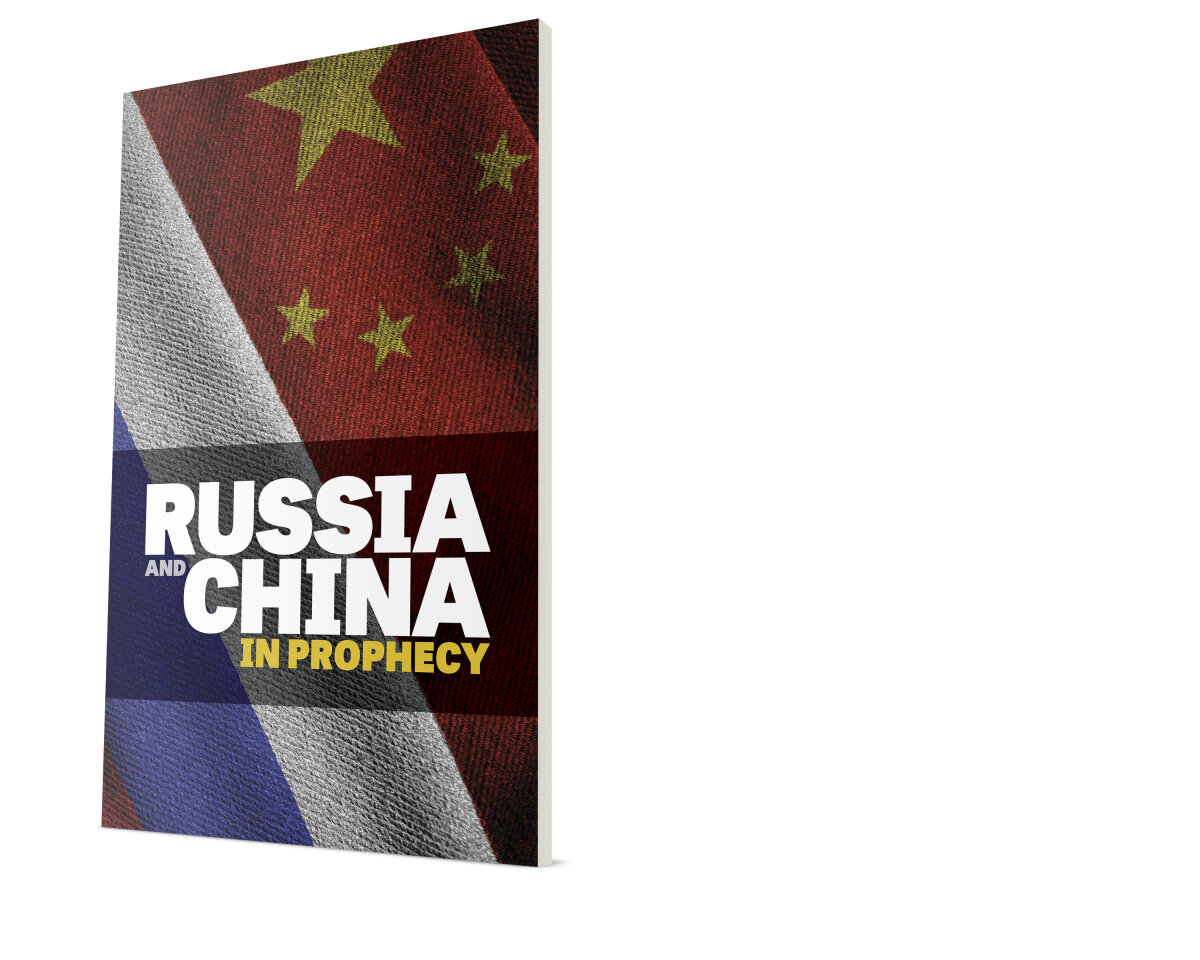
WILL JAPAN GO TO WAR AGAIN?
What has the Japanese military done in the past? What is it doing now? What could it be capable of in the future? For decades, Japan has refrained from constructing an aggressive military, but now that is changing. Could the great Japanese people, who are so brilliant in building machines, build another nation-destroying war machine?
The Bible forecasts that Japan will form part of a global economic bloc (Isaiah 23), ally with giants of Asia (Daniel 11), and clash with another superpower in the worst world war the planet has ever seen (Revelation 16). To understand the prophecies about Japan in more detail, request your free copy of Russia and China in Prophecy.
